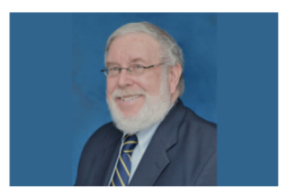“I’ll take fifty percent efficiency to get one hundred percent loyalty”
– Samuel Goldwyn (American movie producer)
In a previous editorial, I discussed the concept of patient loyalty at great length. I reviewed how important patient loyalty is to the success and growth of the practice, as well as provided tips on how to obtain it and warnings about how to lose it.
This month, I am continuing that theme by talking about employee loyalty–including physician loyalty. This type of loyalty, along with the trust and respect which fosters it, is equally critical, forming the backbone of a well-run medical office.
How can a practice nurture employee commitment, high performance and loyalty? Perhaps most important is the creation of a culture of bidirectional communication. The ultimate employer or organization must allow for regular feedback from those in a subordinate position. Constructive criticism, as well as suggestions for workflow or process change, must not only be welcomed but encouraged. Employees of all ranks must feel as if they “matter” and as if their voices will be heard without hesitation or fear.
The employer or organization must provide clear position descriptions and relatively detailed expectations and goals and offer tangible recognition for those who consistently exceed expectations. Extra vacation time, bonus payments, or even public acknowledgment (“Employee of the month” designation) are some examples.
Employees must know that they are “seen,” valued and appreciated. As the employees are diligently working for the success of the practice, the practice should–in turn–provide as much definitive job security as is feasible.
If possible, given the practice structure and size, some upward mobility opportunities should be offered.
Finally, the practice environment should be “fun” to whatever extent possible. Multicultural lunch events, holiday decorations and parties, birthday celebrations, and similar events are all ways the employees can feel that the “job” is not just a tolerable grind, but more like a second family.
A generation ago, most employees worked for one or two employers during an entire career. Today, that type of relationship between employer and employee rarely exists, putting the burden of establishing and maintaining employee dedication and loyalty squarely on the employer’s shoulder.
Remember: Loyalty cannot be commandeered, and it cannot be bought. It requires continuous energy, effort, and reinforcement.
Physician loyalty may manifest in a multitude of ways. Recruiting new patients from among family and friends, sharing ideas to improve one or more aspects of health care delivery, and a willingness to expend more than the minimal effort to fulfill job requirements are all ways in which physician loyalty may be demonstrated.
Some drivers of physician loyalty include:
1. Physicians feel that the entire organization prioritizes high-quality care above all else.
2. Physicians sense that both senior professional and non-professional upper management are responsive to their needs and concerns.
3. Physicians have a high degree of confidence that all ancillary staff–from schedulers to receptionists, from medical assistants to nurses–have been given adequate training and receive appropriate ongoing support to insure a positive patient experience.
It is extremely frustrating for a physician to realize that his/her efforts at providing care are being undermined by an unfavorable patient experience with scheduling or billing or any other extraneous aspect of the practice. As Dr. Thomas Lee, chief medical officer at Press Ganey, has said, “Physicians want to practice medicine in a setting where they perceive seamless collaboration across the care team. Patient experience and physician engagement are both complementary and intimately connected. Recognizing and optimizing the direct relationship between the overall patient experience and physician satisfaction is critical for practices to thrive in the modern marketplace.”
Finally, physicians are also loyal when they feel the practice environment is healthy, cooperative and collegial, as opposed to toxic, avaricious, competitive, and contentious.
Physicians and employees want to feel a sense of “community.” Just as employees have choices, facilitated by the easy availability of information from the internet, so too do health care providers have options available. Physician loyalty, employee loyalty, and patient loyalty must be cherished and cultivated. Otherwise, this quote from television actor Dick Van Patten may become operative with regards to your practice, “The only honest reaction and true loyalty that we get is from our pet animals.”



